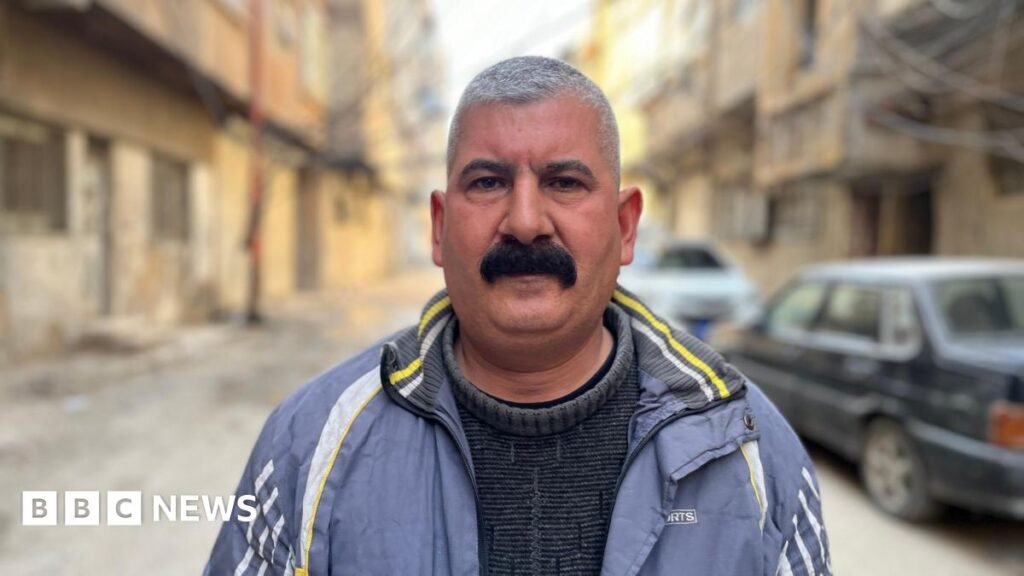As we talk to Taufiq, more and more people come up to us to tell us their stories.
Khalid Nasir says his infant daughter Noor, his two-year-old son Omar and his pregnant wife Fatima were also killed in the 2018 chlorine attack.
“Mostly children and women were killed.”
The anger that he had to suppress for six years is revealed.
“The whole world knows that Bashar al-Assad is an oppressor and a liar, and that he killed his own people. My wife was killed two days before she was to give birth to our child,” he shouts, worried.
The chlorine attack was not the only case of chemical weapons use in the area.
In 2013, rockets containing the nerve agent sarin were fired at several rebel-held suburbs of Eastern and Western Ghouta, killing hundreds of people. UN experts confirmed the use of sarin, but did not ask to assign blame.
Assad has denied that his forces launched the missiles, but he has agreed to sign the Chemical Weapons Convention and destroy Syria’s declared chemical arsenal.
Between 2013 and 2018, Human Rights Watch documented at least 85 chemical weapons attacks in Syria, blaming the Syrian government for most of them.
In addition to Douma, in 2018 the OPCW Investigation and Identification Team identified the Syrian military as responsible for four other chemical weapons incidents in 2017 and 2018. An earlier fact-finding mission, which had no mandate to identify the perpetrators, found chemical weapons used in 20 cases.
Khalid and Taufiq took us to a mound on the side of the road, a short drive away. They believe that it was here that the regime took the bodies of their family and buried them in a mass grave.
Looking down at the ground, pieces of bone are visible among the gravel, mud, and rocks, although it is impossible to tell if they are human remains.
“This is the first time I’ve set foot here, I swear to God. If I had tried to come here earlier, they (the regime) would have punished me,” says Tawfiq.
“On Eid, when I was missing my family, I was driving along the side of this road and took a quick look at this (mound). It made me cry.”
Taufiq wants the graves dug up so he can bury his family with dignity.

